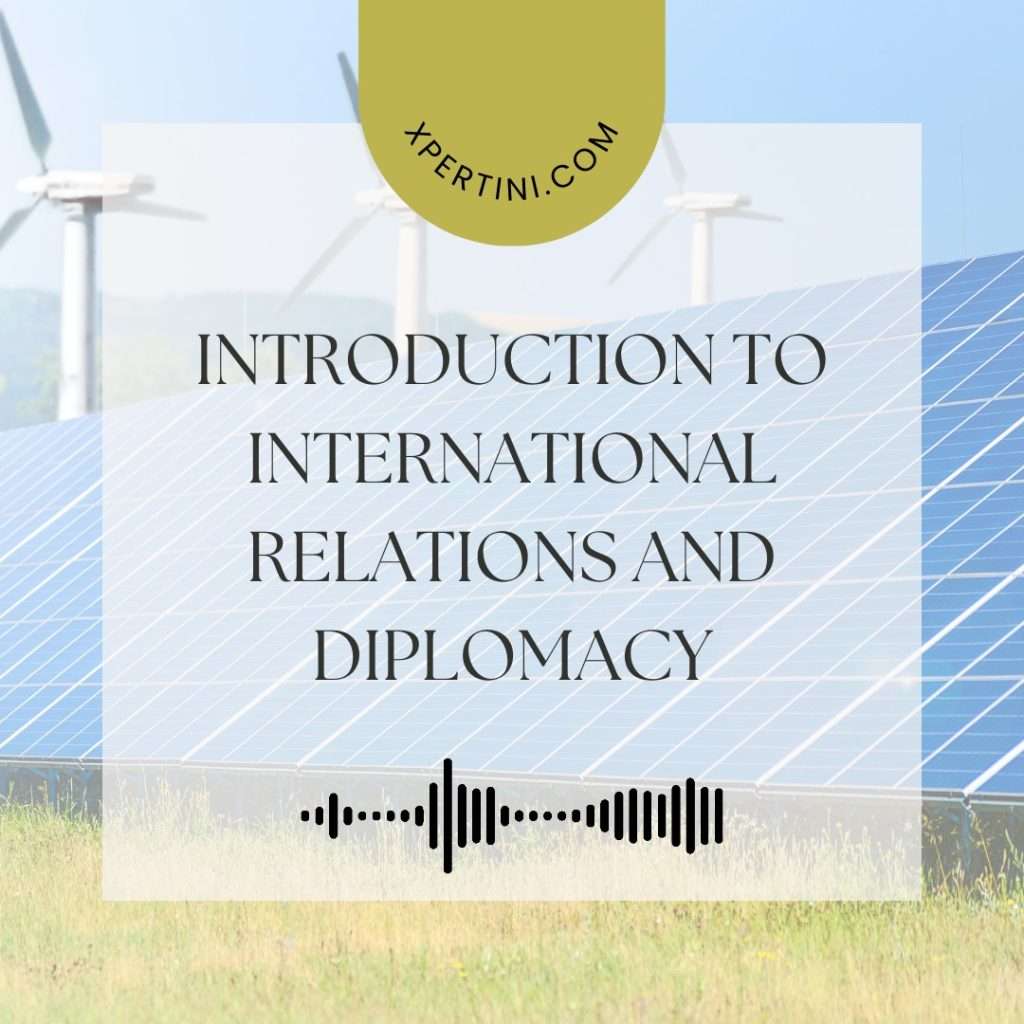Introduction to International Relations and Diplomacy
Course Summary
In the landscape of international relations, understanding the intricacies of diplomacy, conflict resolution, and global governance is paramount. This course delves deep into the multifaceted realm of international relations, offering insights into the role of diplomacy, the impact of globalization, and the complexities of power on the world stage.
Exploring diplomatic practices, learners gain an understanding of the various types of diplomacy, from bilateral and multilateral approaches to the importance of public and track II diplomacy. Through comprehensive analysis, students uncover the critical functions of diplomacy in fostering cooperation, resolving disputes, and shaping international policies.
Examining the influence of globalization, participants delve into its profound effects on state sovereignty, economic development, and cultural exchange. From the challenges posed to traditional power structures to the opportunities for increased connectivity and collaboration, learners gain a holistic understanding of globalization’s impact on the global landscape.
Delving into the intricacies of conflict and cooperation, this course explores the root causes of interstate and intrastate conflicts, as well as the mechanisms for resolution and peacebuilding. From analyzing power to examining the role of cultural identity in shaping state behavior, participants gain insights into the complexities of global politics.
Furthermore, the course offers valuable insights into the diverse career opportunities available in the field of international relations. From diplomatic roles within international organizations to careers in academia, policy analysis, and advocacy, learners gain a comprehensive understanding of the skills and qualifications necessary for success in this field.
Course Overview
This course provides a foundational understanding of international relations and diplomacy, exploring the complex interactions between states, non-state actors, and international institutions. Students will delve into key theories, historical events, and contemporary issues shaping the global landscape.
Course Objectives
- Understand the fundamental theories and concepts of international relations.
- Analyze the historical development of the international system.
- Evaluate the role of diplomacy in managing international relations.
- Critically assess contemporary global issues and conflicts.
- Develop effective communication and negotiation skills.
- Gain insight into the workings of international organizations and institutions.
- Explore the impact of globalization on international relations.
- Examine the role of culture, identity, and power in shaping international .
- Apply theoretical frameworks to real-world scenarios.
- Explore potential career paths in international relations and diplomacy.
Course Outcomes
- Identify and explain the major theories of international relations.
- Demonstrate an understanding of the historical events and developments that have shaped the modern international system.
- Critically assess the role of international organizations in global governance.
- Apply negotiation techniques to simulate diplomatic negotiations.
- Analyze the impact of globalization on state sovereignty and international cooperation.
- Evaluate the influence of cultural and identity factors on international relations.
- Develop written and oral communication skills for diplomatic contexts.
- Synthesize theoretical concepts with real-world examples to analyze contemporary international issues.
- Explore career opportunities in the fields of international relations and diplomacy.
Course Audience
- Students pursuing careers in international relations, diplomacy, or related fields.
- Professionals seeking to enhance their knowledge of global affairs.
- Individuals interested in understanding the complexities of international politics and diplomacy.

